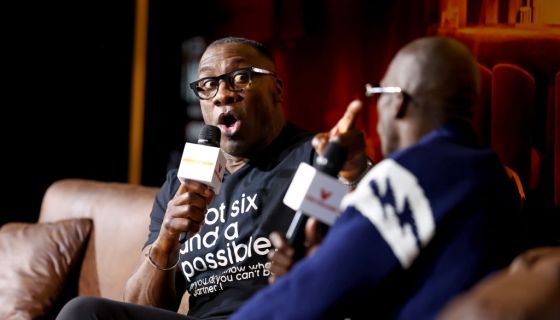I don’t want to be one of those people—the anti-religious who think there are absolutely no redeeming qualities in religion, but reading things like this only help to alienate me from faith in general.
To make my position clear, I’ll first start by saying that I don’t believe that any religions are inspired. People create religions for primarily three reasons:
- To get answers about things they do not understand, such as why the world works the way it does and were people go after they die
- To promote their own agenda and to control the masses
- To gain inner peace and tranquility
Reasons one and two are the ones with which I have a problem; however, I will be focusing on two today. But, I probably should just start by saying what motivated this topic before post loses any sense of order.
What caused me to think about this topic today was Phillis Wheatley (1754?-1784), a talented Senegalese woman who was kidnapped and sold to John Wheatley when she was seven. He taught her to read and write. She used her knowledge to create poems that astonished Americans at the time. They didn’t believe that an African girl could be brilliant. She published Poems on Various Subjects; Religious and Moral in 1773, which was praised in both Europe and North America. With her prominence, it would be marvelous if she used her talents and influence to move others to understand the barbarism of slavery, helping to liberate her brothers and sisters, as Olaudah Equiano did for example. Instead, she created poetry like this. (I highlighted the most notable parts.)
‘Twas mercy brought me from my Pagan land,
Taught my benighted soul to understand
That there's a God, that there's a Saviour too:
Once I redemption neither sought nor knew.
Some view our sable race with scornful eye,
"Their colour is a diabolic die."
Remember, Christians, Negros, black as Cain,
May be refin'd and join the' angelic train.
Taught my benighted soul to understand
That there's a God, that there's a Saviour too:
Once I redemption neither sought nor knew.
Some view our sable race with scornful eye,
"Their colour is a diabolic die."
Remember, Christians, Negros, black as Cain,
May be refin'd and join the' angelic train.
Two things are notable about this poem. The first is Wheatley’s praising slavery as an act of divine providence. The fact that anyone, especially someone whose race is a victim of it, could think that such cruelty and brutality is a gift from God is astonished me. Being someone’s slave is worth it in the end because you will die and spend eternity worshiping a God who put you in that position to begin with?
The second piece of this poem that I found disturbing is the apologetic way that she refers to our race. If we are cleaned up and civilized, we can too can be permitted into heaven behind the Europeans. Oh, joy.

In addition, her reference to Cain is also interesting. Christians have long used the myth that Cain was cursed with black skin by God to advocate racism against Africans. She actually believes this lie, and thinks that we should be tolerated in spite of this fault. But, before I go on, I want to clarify I’m not blaming Wheatley personally for this. She was a victim of a society that has used religion as a medium of control. It disgusts me that not only did Americans use this reasoning to justify slavery, but also they were able to integrate it so much in our psyche that we even accepted inferiority—even to the point where we were grateful for slavery. However, what is important is that this thinking still motivates our actions to this day.
How much does myth and superstition control African-Americans? Do you know someone who routinely wastes her money by throwing it away to preachers or and churches expecting God to “multiply her seed” so that she can “reap her harvest?” What about someone who continues to make foolish mistakes because “God will make a way” or will provide? Have you heard songs like this?
“Faithful Is Our God”
I'm reaping the harvest God promised me
Take back what the devil stole from me
And I rejoice today, for I shall recover it all
Take back what the devil stole from me
And I rejoice today, for I shall recover it all
“The Blessing of Abraham”
You are the seed by faith receive
The blessing of Abraham
Wherever you are, where er' you go
Whatever you touch is anointed to grow
"God Will Make a Way"
God will make a way
Where there seems to be no way
He works in ways we cannot see
He will make a way for me
He will make a way for me
It’s about time that we learned that neither God nor prayer nor magic beans will grant prosperity. There is no force that trails you, allows good things to happen to you, or that mops up your messes up when things go wrong. Your life is entirely in your hands. If you seek opulence, then it will have to be through your hard work, determination, and education—not because you gave a seed of a hundred bucks to your preacher. This is just one example, but I look forward to when religion stops holding us back.





